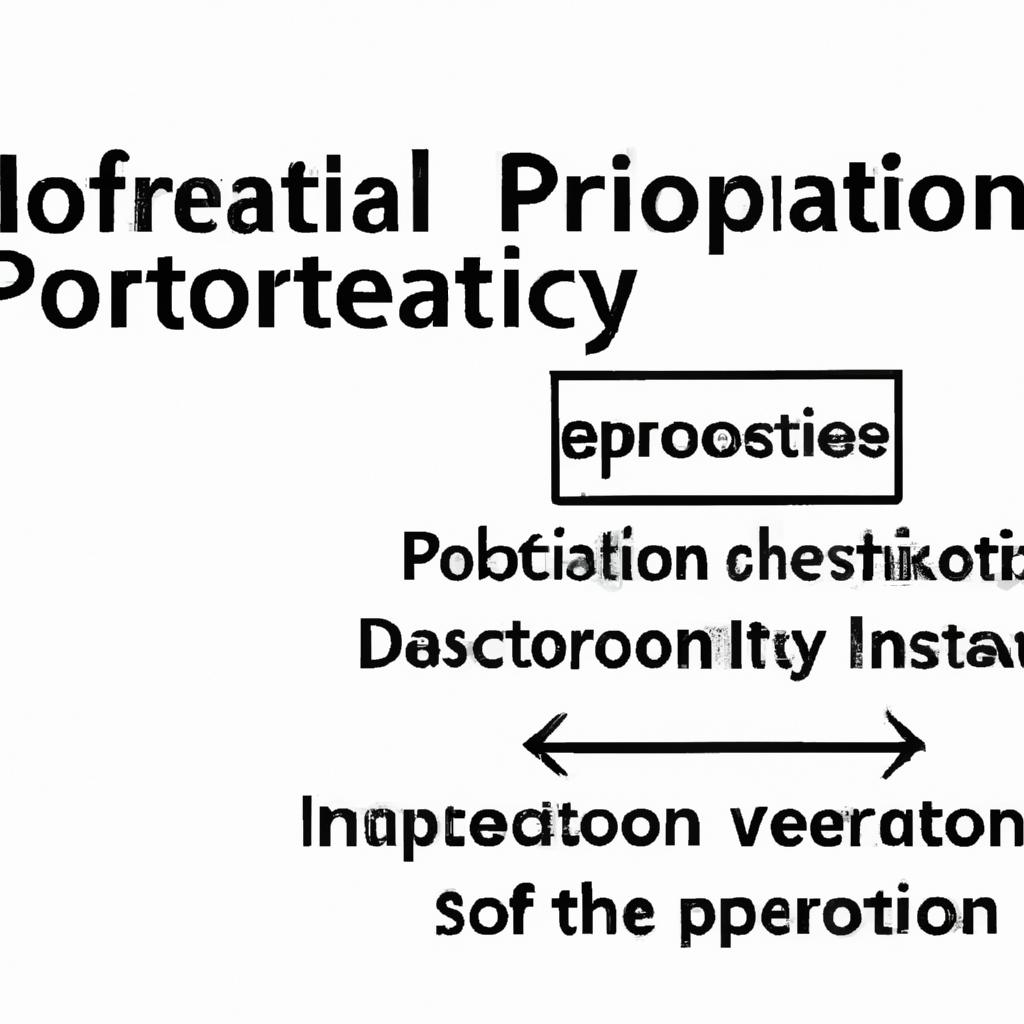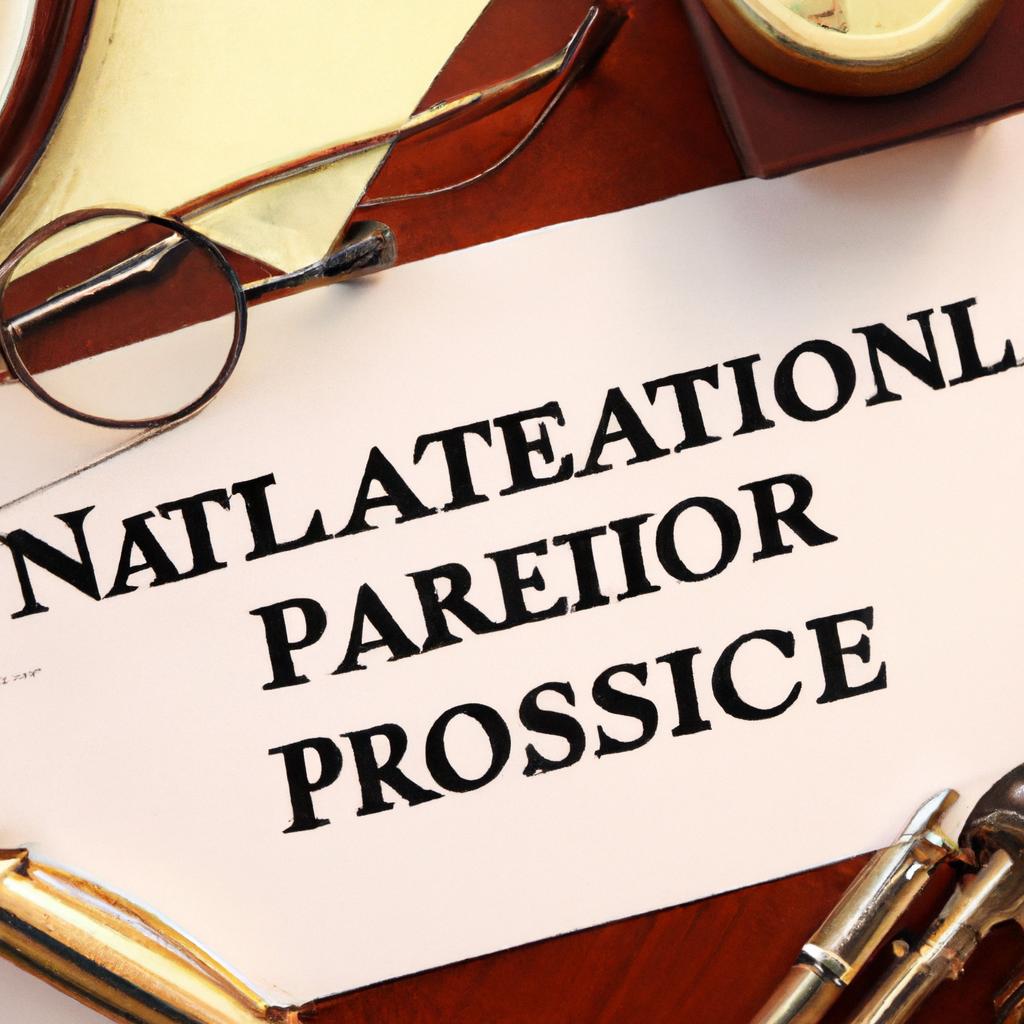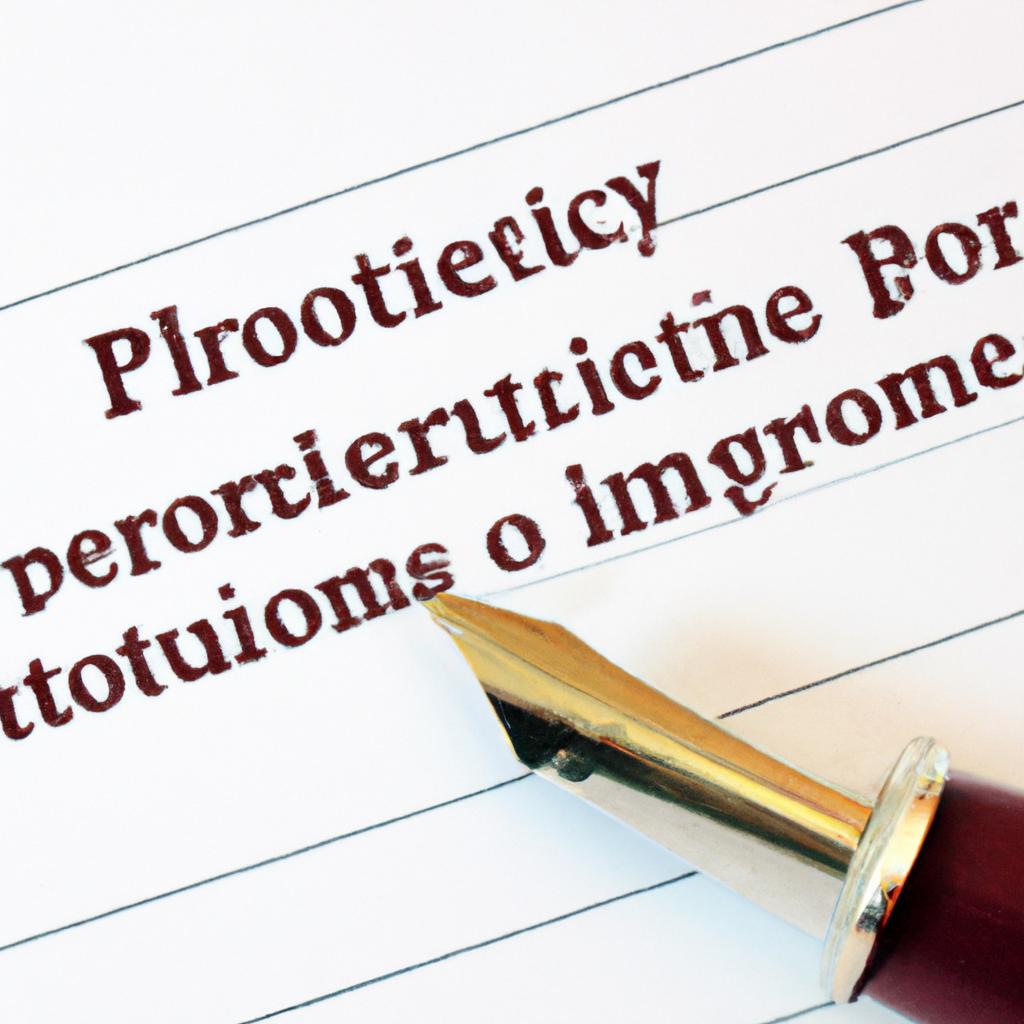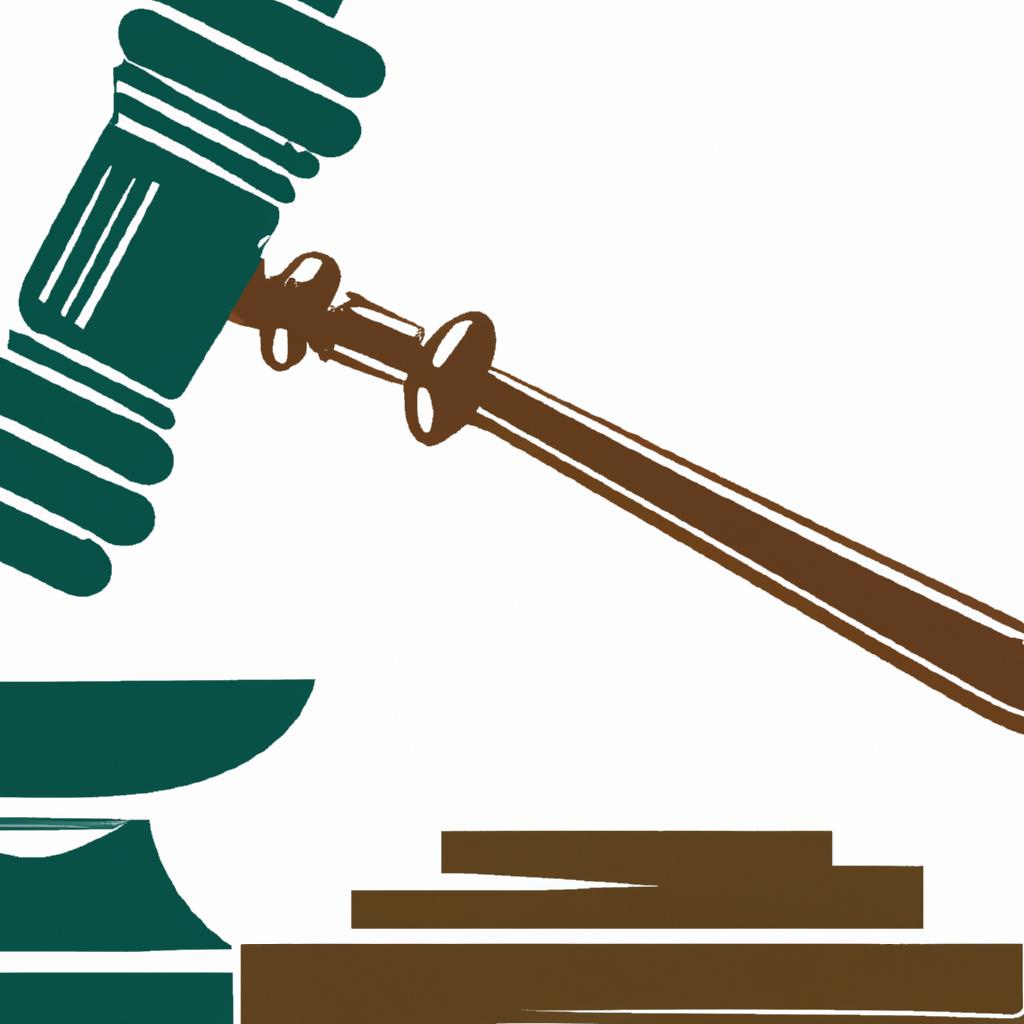In the complex realm of property law, few terms evoke as much confusion and uncertainty as probate. As experienced practitioners in the field of estate planning and probate, the team at Morgan Legal Group in New York City is well-versed in unraveling the intricacies of this often-misunderstood process. In this article, we aim to demystify the concept of property in probate and explore what it truly means for individuals and families navigating the legal complexities of inheritance and the transfer of assets. Join us as we delve into the nuances of probate law and shed light on the implications of having property tied up in probate.
Understanding the Probate Process for Property Transfers
When a property is in probate, it means that the legal process of administering the estate of a deceased person has begun. This process typically involves validating the deceased’s will, identifying and inventorying the deceased’s assets, paying off any debts or taxes owed by the estate, and distributing the remaining assets to the heirs or beneficiaries.
During the probate process, the court supervises the transfer of the property to the rightful beneficiaries. This ensures that the deceased person’s final wishes are carried out and that any disputes or claims against the estate are properly resolved. It is essential to have a skilled estate planning attorney guide you through the probate process to ensure that the property transfers are handled correctly and according to the law.

Implications of Probate on Property Distribution
When property is in probate, it means that the legal process of administering the estate of a deceased person is taking place. This process involves identifying and gathering the assets of the deceased, paying off any debts and taxes owed, and then distributing the remaining assets to the beneficiaries named in the deceased’s will or determined by state law if there is no will. Probate can have implications on property distribution that must be carefully considered.
Some include delays in the transfer of assets to beneficiaries, potential costs associated with probate proceedings, and the public nature of probate which can expose the deceased’s financial affairs to scrutiny. Additionally, probate can be a complex and time-consuming process, especially if there are disputes among beneficiaries or creditors. It is important to consult with an experienced estate planning attorney to navigate the probate process and ensure that property is distributed according to the deceased’s wishes.

Navigating the Complexities of Probate for Real Estate
When property is in probate, it means that the ownership of the property is being determined through the legal process of probate court. This typically occurs when the owner of the property has passed away and their estate needs to be settled. Probate is the process of validating a will, if there is one, and distributing the assets of the deceased according to the will or state law. Real estate that is included in the probate process can pose unique challenges and complexities that require careful navigation.
During the probate process for real estate, there are several key points to consider:
- Title Issues: Ensuring that the title of the property is clear and free from any liens or claims is essential for a smooth probate process.
- Valuation: Determining the value of the property accurately is crucial for fair distribution among beneficiaries or heirs.
- Transfer of Ownership: Transferring ownership of the property to the rightful heirs or beneficiaries can be a complex process that requires legal expertise.

Key Considerations for Executors Handling Property in Probate
When property is in probate, it means that the legal process of administering the estate of a deceased person is underway. Executors, who are responsible for managing the deceased’s assets and distributing them to the beneficiaries, play a crucial role in handling property in probate. There are several key considerations that executors should keep in mind while navigating the complexities of probate.
One important consideration is to identify and secure all assets belonging to the deceased. This includes real estate, financial accounts, personal belongings, and any other property owned by the deceased. Executors must also determine the value of these assets and ensure that they are properly maintained during the probate process. Additionally, executors must follow the legal requirements for probate, such as filing the necessary paperwork with the court, notifying creditors and beneficiaries, and resolving any disputes that may arise. By staying organized, communicating effectively, and seeking guidance from legal professionals when needed, executors can successfully navigate the challenges of handling property in probate.
Q&A
Q: What does it mean when property is in probate?
A: When property is in probate, it means that the legal process is underway to settle the estate of a deceased individual.
Q: How does the probate process work?
A: The probate process involves determining the validity of a deceased individual’s will, paying off debts and taxes, and distributing assets to beneficiaries.
Q: What are some common reasons why property goes into probate?
A: Property may go into probate if a deceased individual did not have a will, if there are disputes among beneficiaries, or if there are creditors that need to be satisfied.
Q: How long does the probate process typically take?
A: The length of the probate process can vary depending on the complexity of the estate and any disputes that may arise, but it can take anywhere from a few months to several years.
Q: Are there ways to avoid the probate process?
A: Yes, there are ways to avoid probate such as creating a living trust or designating beneficiaries on assets like retirement accounts and life insurance policies.
Q: What should individuals do if they believe they are entitled to property in probate?
A: Individuals who believe they are entitled to property in probate should consult with an attorney to ensure their rights are protected and to navigate the legal process effectively.
Closing Remarks
In conclusion, navigating the intricacies of probate can be a daunting task, especially when it comes to dealing with property. Understanding what it means when property is in probate is crucial for those involved in estate planning or inheritance matters. By seeking the guidance of legal professionals and engaging in open communication with all parties involved, the process can be managed effectively and efficiently. Remember, patience and cooperation are key when dealing with probate, and with the right support, the journey through probate can ultimately lead to a smoother resolution for everyone involved.
 Probate is a legal process that takes place after a person passes away and involves the transfer of their assets, including real estate, to their heirs or beneficiaries. When a person’s property is in probate, it means that their assets are being distributed according to their will or state laws.
Probate is a legal process that takes place after a person passes away and involves the transfer of their assets, including real estate, to their heirs or beneficiaries. When a person’s property is in probate, it means that their assets are being distributed according to their will or state laws.
This can be a confusing and overwhelming process for those involved, as it involves legal procedures and documentation. In this article, we will delve into the details of what it means when property is in probate, and provide valuable information and tips to help you navigate the probate process.
What is Probate?
Probate is a legal process that is conducted in court and involves determining the validity of a deceased person’s will, paying off any outstanding debts, and distributing their assets to the rightful heirs or beneficiaries. This process ensures that the deceased person’s assets are properly transferred and their wishes are upheld after their passing.
When is it Necessary?
Probate is necessary when a person passes away and their assets need to be transferred to their heirs or beneficiaries. This can apply whether the person had a will or not. If the person had a will, the probate process will follow the instructions outlined in the will. If they did not have a will, the state’s laws will dictate how their assets will be distributed.
The probate process is also necessary if the deceased person owned real estate in their name alone. If the property is owned jointly with someone else, such as a spouse, the property will not typically go through the probate process.
How Does the Probate Process Work?
The probate process typically begins with the filing of a petition with the court to initiate the probate. This is usually done by the executor of the will, who is nominated by the deceased person to handle their affairs after their passing. If there is no will, the court will appoint an administrator to oversee the probate process.
Once the probate has been initiated, the court will review the will and determine its validity. It is then the responsibility of the executor or administrator to collect all of the deceased person’s assets and inventory them.
The court will also require that any outstanding debts of the deceased person be paid off before distributing any remaining assets to the heirs or beneficiaries. This can include outstanding taxes, credit card debts, and other liabilities.
Once all debts have been paid, the remaining assets will be distributed to the heirs or beneficiaries according to the instructions in the will or state laws.
How Long Does Probate Take?
The length of the probate process can vary, depending on the complexity of the estate and any disputes that may arise. On average, the probate process can take anywhere from six months to a year to complete.
During this time, the executor or administrator must handle all legal matters related to the estate, such as paying off debts, filing taxes, and distributing assets. It is important for the executor or administrator to keep detailed records and stay organized during this process to avoid any delays.
What Happens to Property During Probate?
During the probate process, the court will take possession of the deceased person’s assets, including any real estate. This means that the property cannot be sold or transferred until the probate process is complete and the court approves the distribution of the assets.
In the meantime, the executor or administrator is responsible for maintaining the property and ensuring that it is properly cared for. This includes paying any necessary expenses, such as property taxes, mortgage payments, and homeowners association fees.
Once the probate process is complete, the property will be transferred to the rightful heirs or beneficiaries. If the property is being transferred to multiple beneficiaries, they will need to decide how to handle the property. They may choose to put the property on the market, keep it as an investment, or sell it to one of the beneficiaries.
What Are the Costs Involved?
The probate process can be costly, as there are multiple fees involved. These fees can include court costs, attorney fees, and any other expenses related to the probate process. These fees are typically paid out of the deceased person’s estate.
Additionally, there may be property taxes and other expenses that need to be paid while the property is in probate. It is important for the executor or administrator to stay on top of these expenses to avoid any added delays or complications.
Benefits of Avoiding Probate
While the probate process is necessary for some estates, there are certain ways to avoid it altogether. This can save time and money for the deceased person’s loved ones.
One way to avoid probate is to set up a living trust. This allows the assets to be transferred to the trust while the person is still alive, making it easier for the assets to be distributed to the beneficiaries after their passing.
Another way to avoid probate is to add a joint owner to the property. This means that when one owner passes away, the property automatically goes to the surviving owner without needing to go through the probate process.
Practical Tips for Navigating Probate
If you are an executor or administrator for an estate going through probate, here are some practical tips to help you navigate the process:
– Get legal advice: Probate can be a complex and overwhelming process, so it is important to seek legal advice from an experienced attorney who specializes in probate.
– Stay organized: Keep detailed records of all financial transactions involving the estate, including any expenses paid or income earned. This will help you easily track the estate’s finances and avoid any delays.
– Communicate with beneficiaries: Keep the beneficiaries informed of the progress of the probate process and any decisions that need to be made, such as selling the property.
– Be patient: The probate process can take time, so it is important to be patient and stay organized to ensure a smooth process.
Real-Life Example
Let’s look at a real-life example of what it means when property is in probate. Emily’s father passed away, leaving behind a house in his name. Emily was named as the executor of his will and must go through the probate process to transfer the property to her and her siblings.
During the probate process, Emily must pay off her father’s remaining debts and handle all legal matters related to the estate. Once the court approves the distribution of the assets, Emily and her siblings will decide to sell the property and split the profits among them.
In this example, the probate process helped ensure that the transfer of the property was properly handled and the wishes of the deceased person were carried out.
In Conclusion
In summary, when a person’s property is in probate, it means that the property is going through a legal process to be transferred to their heirs or beneficiaries. This process can be complicated and time-consuming, but it is necessary to ensure that the deceased person’s assets are distributed according to their wishes.
If you find yourself in the position of being an executor or administrator for an estate going through probate, it is important to stay organized, seek legal advice, and communicate with the beneficiaries to ensure a smooth probate process.

